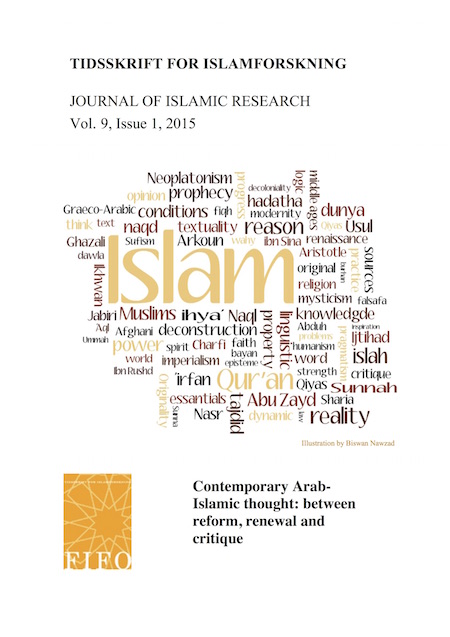Transcending Institutionalized Islām, Approaching Diversity: ʿAbdelmağīd Šarfī’s Conception of a Qurʾānic Ethics of Liberation
DOI:
https://doi.org/10.7146/tifo.v9i1.25345Keywords:
Abdelmajid Charfi, Islam, reform, TunisiaAbstract
This article engages with the intellectual enterprise of Tunisian Professor Emeritus in Arab Civilization and Islamic Thought, ʿAbdelmağīd Šarfī. Šarfī is one among many Arab intellectuals who have engaged in a critical reading of the Qurʾān and the Islamic tradition in order to challenge the traditional Islamic disciplines and methodologies. Through his reading of the prophetic message as discourse rather than text, his interpretation of ‘the seal of the prophets’, and his conception of a Qurʾānic ethics of liberation, this article intend to discuss the difference between an engaged historical criticism, such as Šarfī’s, and the common conception of reformist Islam.Downloads
Published
2017-02-05
How to Cite
Christensen, T. D. (2017). Transcending Institutionalized Islām, Approaching Diversity: ʿAbdelmağīd Šarfī’s Conception of a Qurʾānic Ethics of Liberation. Scandinavian Journal of Islamic Studies, 9(1), 58–78. https://doi.org/10.7146/tifo.v9i1.25345
Issue
Section
Articles: Thematic section
License
Scandinavian Journal of Islamic Studies publish under creative commons license BY-NC-SA.





